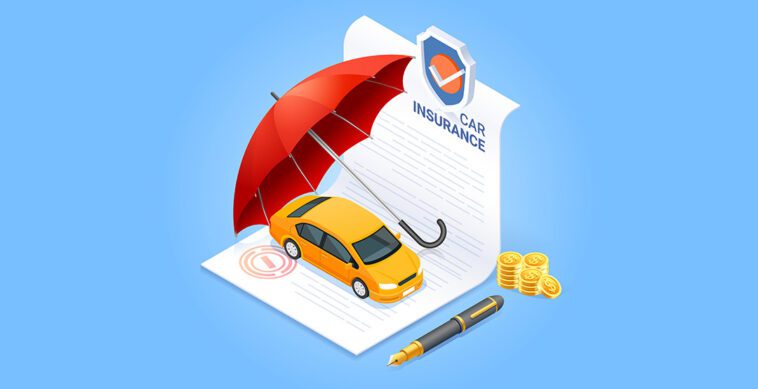Car insurance is a legal requirement in most states and it can be one of the most costly aspects of owning a vehicle. That’s why it’s so important to shop around for a policy that meets both your situation and budget.
It’s wise to get quotes periodically, so you don’t overpay. Doing this allows for flexibility in coverage that adjusts according to changes in life.
Coverage
Coverage refers to the various levels of protection your car insurance policy provides. It can range from the minimum required by law up to a high-end package designed to safeguard both your car and personal belongings.
Liability (bodily injury and property damage): This coverage covers any costs resulting from injuries you cause others or their property in an accident, as well as providing legal defense if sued in connection with said incident.
Collision: This coverage reimburses you for damage caused to your car in a collision with another vehicle or object, such as a tree, guardrail or telephone pole. It can also cover the cost of replacing your windshield if it gets shattered during an accident.
Comprehensive: This coverage protects you against theft, vandalism, fires, floods and more. It’s often sold alongside collision coverage and helps cover the costs of repairing or replacing your vehicle.
Uninsured/Underinsured Motorist Coverage: This coverage helps cover the costs of damages if someone hits you without adequate insurance, or no coverage at all. It may also cover medical expenses for you and any passengers injured in an accident regardless of who was at fault.
Your car insurance premiums will depend on a number of factors, such as your driving record and vehicle value. It’s wise to shop around when it comes time for renewal even if you already have an existing policy with one provider.
Liability
Liability car insurance provides protection in the event that someone else makes a claim against you, claiming that you were at fault for an accident. It also pays your legal defense costs in court and any judgments or settlements that may arise as part of that suit, up to the limits set out in your policy.
Bodily injury liability coverage pays medical bills and lost wages for other people injured in an accident caused by you, while property damage liability covers damage done to other people’s cars, buildings, fences or other property if the crash was your fault. These are typically the two most common types of liability claims; however other coverage options exist as well.
Many states require motorists to carry liability coverage, and each has different minimum limits. To learn more about your state’s requirements for drivers, reach out to the Department of Motor Vehicles in your area, visit their website or speak with a licensed insurance agent or broker in your vicinity.
You may want to obtain more liability coverage than what your state requires, since if you’re found at fault for an accident, it could cost you a considerable amount in damages and medical expenses. For instance, if your policy only covers $135,000 in property damage but the other driver files a lawsuit for $100,000, then you could potentially lose everything you own.
Collision
Collision insurance pays to repair or replace your car after an accident. This coverage can be added on as an option to a full policy, or purchased separately as an add-on.
Collision coverage differs from liability insurance in that there is no cap. If your car is totaled in an accident, you’ll receive a check for its actual cash value less any deductible payments you made.
When deciding whether or not to add collision coverage for your car, take into account its value and insurance costs as well as your financial situation. If you can pay for repairs or replacement out of pocket, carrying this type of policy may not make financial sense.
The cost of a collision policy varies by state and is dependent on your age, gender, driving record and other personal information. You can reduce costs by setting lower auto coverage limits or choosing to have a higher deductible.
To determine whether collision insurance is right for you, speak with a car insurance agent. They can assess your individual circumstances and needs before suggesting the most suitable policy. Furthermore, they provide quotes from various car insurers.
Comprehensive
Comprehensive insurance is a type of car insurance that protects your vehicle against non-collision events like weather damage, theft and vandalism. It typically comes as part of a full coverage car policy and may be required by lenders when you’re leasing or financing your vehicle.
Comprehensive claims are common in response to natural disasters like tornadoes or hurricanes. It also covers glass/windshield damage, theft and vandalism. Comprehensive coverage pays for repairs up to the actual cash value of your car less any deductible you may have paid.
When filing a comprehensive claim, it is essential to document the damage to your car as accurately and thoroughly as possible. Doing this will allow the insurance company to decide if your loss qualifies for comprehensive coverage.
Insurers will evaluate your claim and decide if they’ll cover repairs or if you’ll be left with a total loss, meaning your car cannot be fixed. In this scenario, either purchasing a new vehicle is necessary or funds from loans or leases could be released from them to cover the expense of replacing it.
Comprehensive insurance becomes less useful the older your vehicle is, so it may not be worth purchasing if you own or are financing a car that’s worth little. On the other hand, if you live in an area prone to severe weather or have high-value vehicle and can’t afford replacement costs, adding this coverage may be worthwhile for you.
Discounts
Car insurance discounts can be a great way to reduce the cost of your premium. There are various kinds of discounts you may qualify for, from those common (like anti-theft devices) to more unusual options like driving abroad.
These savings come in the form of a percentage discount off your policy or reduced deductibles. Discounts may be given based on several factors, including driving history and personal details.
Insurers typically provide discounts to drivers with a long history of safe driving. This usually requires installing a telematics device that records your driving habits, such as how many miles you cover each week, how often you accelerate and brake, and whether or not you park at night.
Many insurers reward drivers who stay claim-free for a certain period of time – usually six months or one year depending on the company. This discount can be substantial depending on the company.
Another popular discount type is the multi-car discount. Grouping two or more vehicles under one policy can result in savings of up to 25%.
Discounts are an integral component of many car insurance companies’ marketing plans. Not only do they attract new customers, but they also help maintain loyalty among existing ones.
Online quotes
Online quotes provide a useful indication of what to expect from a car insurance company. While these estimates aren’t exact, they do vary based on factors like age, location and driving history.
When getting an online quote, be sure to have all necessary information at your disposal. This includes both your vehicle identification number (VIN), as well as your name and date of birth for each driver in the household, plus employment data.
Additionally, make sure you have your driving record handy since most insurers use this to determine your rate. If there are any speeding tickets or DUIs on your record, expect higher prices than someone without such issues.
To guarantee you get the lowest car insurance rates possible, take time to shop around. This can be done quickly and easily through an online quote comparison tool or direct contact with one of your top insurers in your area.
Online car insurance shopping is an efficient way to stay current on any policy changes. For instance, if you purchase a new car and add it to your policy, all of the information on it can be updated within minutes – leading to an instant decrease in premium cost.

